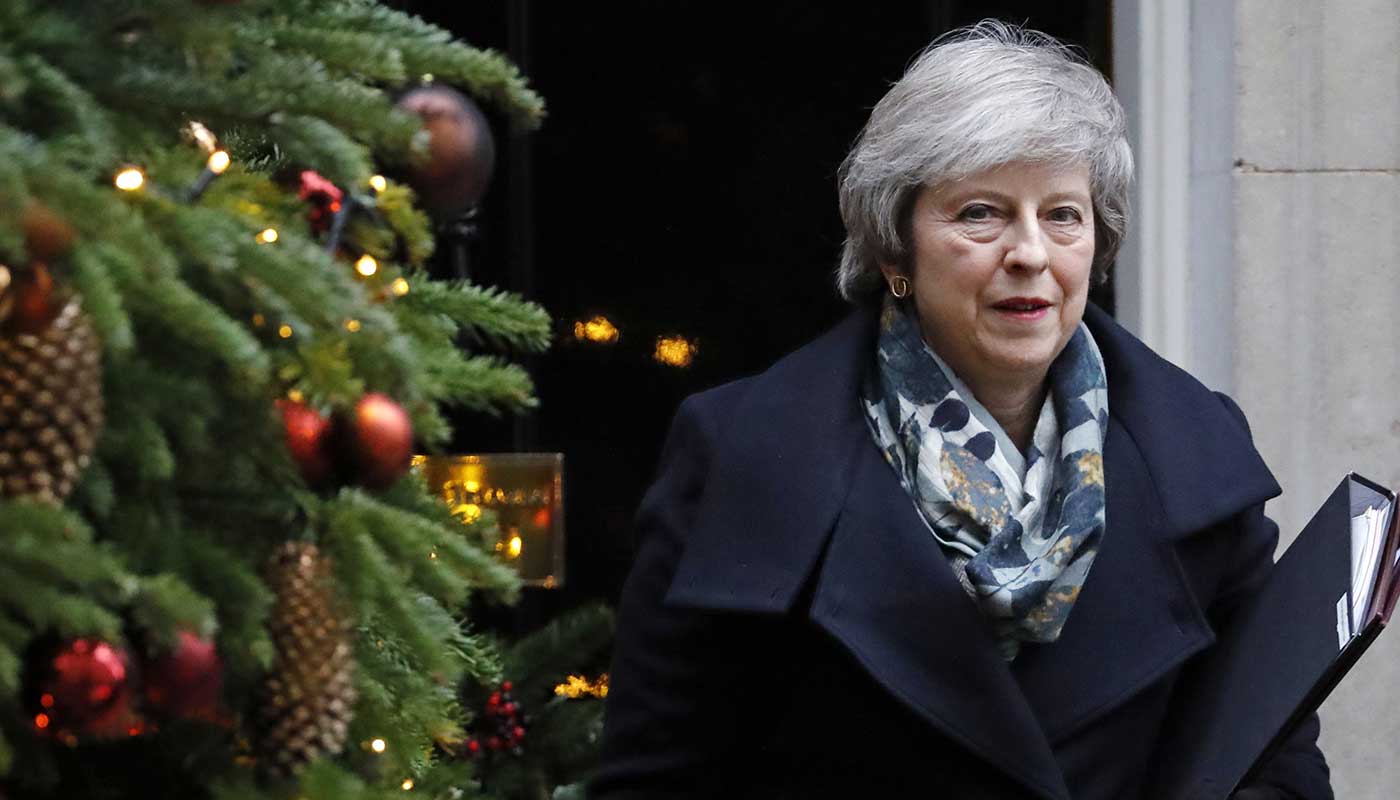Labour and Tories in disarray after call for confidence vote
Labour party say Downing Street is ‘running scared’, but Conservatives accuse Corbyn of ‘bottling it’

A free daily email with the biggest news stories of the day – and the best features from TheWeek.com
You are now subscribed
Your newsletter sign-up was successful
Labour leader Jeremy Corbyn tabled a motion of no confidence in Theresa May yesterday, after the prime minister announced that MPs would not get a chance to vote on the government’s Brexit deal until at least mid-January.
The motion tabled by Corbyn asked MPs to declare they had “no confidence in the prime minister due to her failure to allow the House of Commons to have a meaningful vote straightaway”.
Corbyn told the House of Commons that May had led the United Kingdom into a “national crisis”, adding that it was unacceptable to force MPs to wait nearly a month to vote on the deal.
The Week
Escape your echo chamber. Get the facts behind the news, plus analysis from multiple perspectives.

Sign up for The Week's Free Newsletters
From our morning news briefing to a weekly Good News Newsletter, get the best of The Week delivered directly to your inbox.
From our morning news briefing to a weekly Good News Newsletter, get the best of The Week delivered directly to your inbox.
“It’s bad – unacceptable – that we should be waiting almost a month before we have a meaningful vote on the crucial issue facing the future of this country,” Corbyn said.
However sources at No 10 told the BBC that the government would not make time for the no-confidence vote and that ministers would not “go along with silly political games”.
BBC political editor Laura Kuenssberg said that in not allowing time for the motion to be debated, Downing Street had effectively “batted the ball back to Labour to see if they have the guts to call for a vote of no confidence in the government as a whole”, which, if it were tabled, “could bring about an early general election if it is supported by a majority of MPs”.
Labour said that Downing Street was “running scared” in not allowing the vote of no confidence in May, but the Tories “hit back, saying that Labour had 'bottled it' by failing to exercise their right to force a no-confidence vote in the government”, The Guardian says.
A free daily email with the biggest news stories of the day – and the best features from TheWeek.com
The SNP and Liberal Democrats had indicated they would support a no-confidence motion in the government, but the DUP and Tory rebels made clear they would not support it, meaning the motion faced defeat.
The whole day may have seemed like little more than “procedural nonsense”, says Kuenssberg, but “what it suggests is that despite widespread frustration on all sides, Jeremy Corbyn is so far stopping short of taking a real shot at toppling May's administration, and is unlikely to do so unless, and until, he thinks he can win.”
-
 What to know before filing your own taxes for the first time
What to know before filing your own taxes for the first timethe explainer Tackle this financial milestone with confidence
-
 The biggest box office flops of the 21st century
The biggest box office flops of the 21st centuryin depth Unnecessary remakes and turgid, expensive CGI-fests highlight this list of these most notorious box-office losers
-
 What are the best investments for beginners?
What are the best investments for beginners?The Explainer Stocks and ETFs and bonds, oh my
-
 How corrupt is the UK?
How corrupt is the UK?The Explainer Decline in standards ‘risks becoming a defining feature of our political culture’ as Britain falls to lowest ever score on global index
-
 The Mandelson files: Labour Svengali’s parting gift to Starmer
The Mandelson files: Labour Svengali’s parting gift to StarmerThe Explainer Texts and emails about Mandelson’s appointment as US ambassador could fuel biggest political scandal ‘for a generation’
-
 Reforming the House of Lords
Reforming the House of LordsThe Explainer Keir Starmer’s government regards reform of the House of Lords as ‘long overdue and essential’
-
 How long can Keir Starmer last as Labour leader?
How long can Keir Starmer last as Labour leader?Today's Big Question Pathway to a coup ‘still unclear’ even as potential challengers begin manoeuvring into position
-
 Three consequences from the Jenrick defection
Three consequences from the Jenrick defectionThe Explainer Both Kemi Badenoch and Nigel Farage may claim victory, but Jenrick’s move has ‘all-but ended the chances of any deal to unite the British right’
-
 The high street: Britain’s next political battleground?
The high street: Britain’s next political battleground?In the Spotlight Mass closure of shops and influx of organised crime are fuelling voter anger, and offer an opening for Reform UK
-
 Biggest political break-ups and make-ups of 2025
Biggest political break-ups and make-ups of 2025The Explainer From Trump and Musk to the UK and the EU, Christmas wouldn’t be Christmas without a round-up of the year’s relationship drama
-
 The MAGA civil war takes center stage at the Turning Point USA conference
The MAGA civil war takes center stage at the Turning Point USA conferenceIN THE SPOTLIGHT ‘Americafest 2025’ was a who’s who of right-wing heavyweights eager to settle scores and lay claim to the future of MAGA